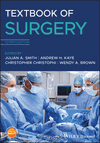Transplantation surgery
Summary
Transplantation is the implantation of an organ, part of an organ or tissue derived from one individual into another individual. Recipient selection is a multistep process that includes assessment of the risk–benefit ratio of transplantation. Organ donor sources include living donors, donation after brain death and donation after circulatory death. Organ procurement involves the replacement of blood in the organs with cold perfusion solution. Machine perfusion systems have been developed that might result in improvements in organ preservation. Kidney and pancreas transplantation are performed in heterotopic fashion and other organs are performed in orthotopic fashion. Complications of transplantation include surgical complications, rejection, graft dysfunction, infection, cancer, cardiovascular and cerebrovascular disease, and disease recurrence. Patient and graft survival following transplantation in Australia and New Zealand are excellent and are superior to the natural history of the conditions for which transplantations are performed.



